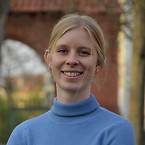Food can bring people closer together, but it can also create distance, especially when it is lacking. Eva Heikki, nurse for Doctors Without Borders, talked to Uttryck Magazine about the role of food in her humanitarian work.
As a trained ICU nurse, she has accompanied Doctors Without Borders four times. Her job sites included Tajikistan, Bangladesh and also South Sudan where she worked during the 2016 food shortage. She is currently in Gaza, helping with Covid-19 response. Her work in South Sudan particularly shaped her relationship with food. In that year, more than one-third of the people in the country faced life-threatening hunger, according to Deutsche Welle. The main reasons included a poor harvest and countrywide conflicts.
Eva Heikki traveled to the young country with doctors without borders, MSF, to work in two primary health clinics, supporting the local staff. Her work covered all kinds of areas; where she supported the different areas in the clinic such as child vaccination, pharmacy and a program for malnutrition. During her time, she was repeatedly confronted with the faces of hunger. Especially, because hunger served as the prevailing narrative in every village that she visited. "Seeing mothers and hearing their stories that they don't have enough food for their kids knowing that they go to sleep hungry, and they cannot do anything for them was really hard. I can just imagine how much that breaks the heart of a parent and it also really affected my heart," the nurse describes the situation in South Sudan.
This is particularly in stark contrast with the fact, stated by the European Commission, that 88 million tons of food end up in the garbage in Europe every year. "I think the inequity of food in the world is always hard to face. I mean knowing how much we all in the rich part can throw away, that's so unfair and I think it is one thing to read about it and see it on TV, but it's so different to see it in real life. I think suffering can have many faces, but malnourished kids is one of the hardest", Eva comments on the inequality of food security.
The scale of South Sudan's food shortage raises the question of how organizations like MSF ensure food supplies for their staff on the ground. To this question, the nurse answers that the care of the international staff is always guaranteed. This happens either by a kitchen team, which cooks for the staff and where the MSF workers can buy the meals or through their own purchase of food. Knowing that one's own food is secured even though it must be sent by planes whilst seeing the people around you suffering Eva describes: "I always felt so bad when I was in the village because I knew they starved, and I had food. And although I didn't eat in front of others, I would still know it. I once asked one of the nurses if she had been on lunch and she just said there isn't much food. They really suffered", she said.
Eva Heikki's mission in South Sudan highlighted the severity and extreme pressure that food insecurity can have on a country. In contradiction, her participation in other MSF missions emphasizes that food, when available, is a topic which brings people together. "People love to talk about their food, and it is something people are proud of. If you eat with them and enjoy the local dishes, it always makes people proud and happy. It's a great way to share moments", Eva Heikki points out. Sometimes people back at home find it hard to understand the impact that such a small thing as food can have when on mission. "Before I left for Gaza, I told people that I look forward to trying the food, since I've heard a lot about the Gazan kitchen. Some people would ask how I could focus on food, knowing I would live in such a difficult place. My answer would always be that food and other small things in daily life is what makes the days so much better, especially when you live under hard circumstances. You have to see the small, good things that's around you."
Portrait: Paulina Cederskär
Original
